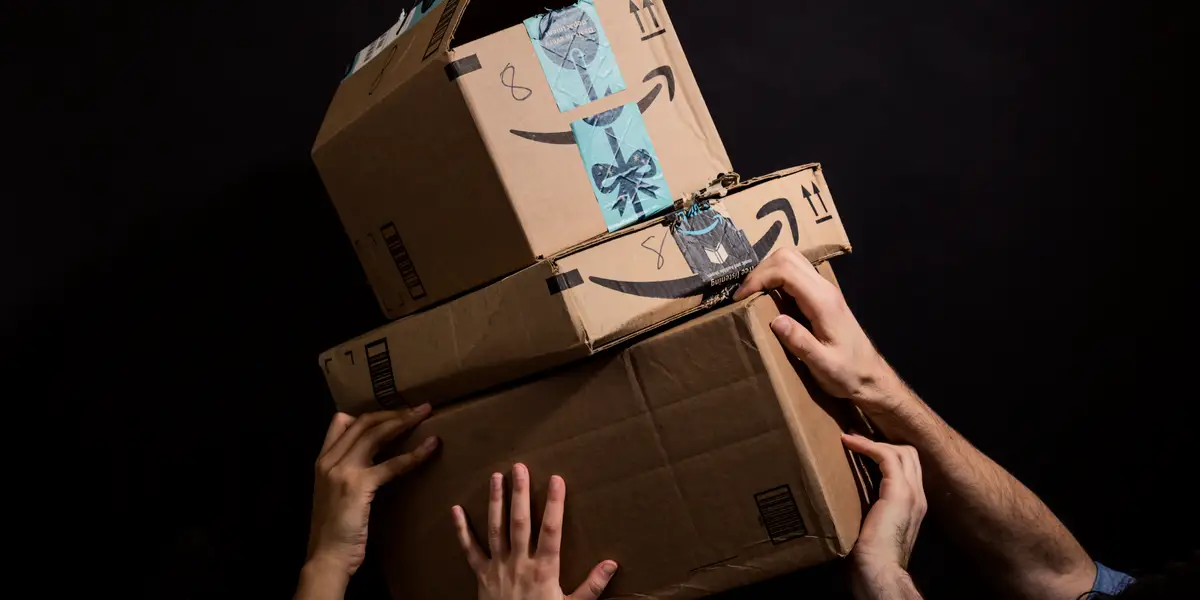By Jordan Zakarin
Amazon is lavishing more money than ever on lawmakers and lobbyists in Washington, DC, as it combats the drive by its unionizing workers fighting for better wages and benefits.
Amazon spent a record $5 million on federal lobbying in the first quarter of 2022, surpassing the previous company high of $4.9 million doled out to lobbyists in the fourth quarter of 2021.
Some of that money is being poured into expanding the company’s army of lobbyists, with four new firms added to Amazon’s roster of DC influence-peddlers. New recruits include a former chief of staff for Republican Rep. Cathy McMorris Rodgers (R-WA), the ranking member in the House Commerce Committee, as well as a former majority staff director of the Senate subcommittee overseeing trade and global competitiveness.
According to federal disclosures, Amazon is focusing much of its increased lobbyist spending on labor and antitrust issues. In the first few months of 2022 alone, the company spent more money lobbying lawmakers on labor issues than it did in all of 2020.
The directive is clear: maintain the decades of business deregulation, lax labor law, and scant worker protections that have allowed a handful of multinational corporations like Amazon, America’s second largest employer, to monopolize the American economy.
Amazon lobbyists reported trying to influence legislators on the Raise the Wage Act, the Pregnant Workers Fairness Act, the Platform Competition and Opportunity Act, the Ending Platform Monopolies Act, the State Antitrust Enforcement Venue Act, and the Competition and Antitrust Law Enforcement Reform Act, among other bills.
The company’s lobbying pressure is being paired with steady campaign donations.
Amazon disclosed nearly $1 million in political contributions from its PAC in the first quarter of 2022, distributed to key legislators on both sides of the aisle, including prominent critics of the company. Amazon has already maxed out contributions to McMorris Rodgers and Sen. Mike Lee (R-UT), who have both threatened to take action against tech companies should Republicans regain majorities in the House and Senate.
Lee has dangled antitrust regulations over monopolies like Amazon. McMorris Rodgers, who represents Amazon’s home state of Washington, promised to “hold Big Tech accountable” in March.
Amazon gave $10K each to both Lee and McMorris Rodgers’s campaigns. It also maxed out to Sen. Ron Wyden (D-OR), chair of the Senate Finance Committee, and Democratic Rep. Marilyn Strickland (WA-10).
Personal donations from executives have also proliferated.
Dave Clark, Amazon’s CEO for Worldwide Consumer, has already directed the maximum $5800 permitted from individuals to Sen. Kyrsten Sinema (D-AZ) and Rep. Kevin McCarthy (R-CA). Clark last year invoked a very different politician in public remarks when he called Amazon the “Bernie Sanders” of employers and boasted about the pay and benefits the company offers.
The remark set off a firestorm and ultimately resulted in Amazon’s PR department admitting that its delivery drivers are often so overworked that they’re forced to urinate in bottles so as to not fall behind on their schedules.
SVP David Zaplovsky, another profligate donor, has also experienced a public relations nightmare. In 2020, he accidentally sent an email to thousands of people in which he called Chris Smalls, now the president of Amazon Labor Union, “not smart or articulate.” The email quickly went public, helping boost Smalls’s profile nationally.
Zaplovsky recently wrote a check for $10,000 to the Democratic National Committee.
The stakes for Amazon have never been higher. While issues of trade, supply chain, and taxation always loom, the company’s biggest priority is stopping its 1.1 million workers from exercising their right to organize and collectively bargain for better workplace conditions and compensation.
Companies that lobby Congress see better stock market performance than companies that don’t, and are more likely to be invested in by members of Congress than non-lobbying companies, according to a new analysis of 2021 federal lobbying data by Unusual Whales.
Decades of unchecked power over a growing workforce and local governments have already begun to erode; in April, the upstart, independent Amazon Labor Union made history when workers voted to unionize the company’s JFK8 warehouse in New York. (Workers at another smaller sorting facility in New York voted against unionizing on Monday.)
The leaders of the Amazon Labor Union say that workers have reached out from facilities across the country in the wake of their victory at JFK8, creating what Jeff Bezos’s e-retailer regards as an existential threat to a business model that relies on incessant workforce burnout and turnover.
In New York, State Sen. Jessica Ramos is presenting a bill that would limit the intense work quotas that have spurred sky-high injury rates in Amazon facilities, while members of the city council are pushing Attorney General Tish James to consider stripping the company of $400 million in tax breaks it received from the state.
On Capitol Hill, Sen. Bernie Sanders is calling on President Biden to bar Amazon from receiving lucrative federal contracts so long as it continues to perpetuate labor violations on its massive workforce nationwide.
Amazon VP Paul Misener has been prolific in donating to Democrats in Virginia, where the company has begun construction on a second headquarters near Arlington. Virginia legislators approved cash grants of more than $578 million — about what Jeff Bezos paid for his super yacht — to build a campus in the northern part of the state.
Amazon influences the public conversation in numerous other ways that aren’t accounted for in their publicly-reported lobbying and campaign contributions. The company is also running a blitz of ads to boost its image, spending millions of dollars on union-busting attorneys and firms, and hiring influential PR and consultancy organizations like Global Strategies Group.



